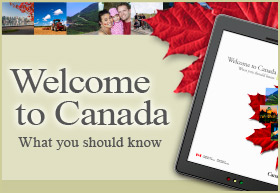If your application is approved
On this page
- Confirmation of Permanent Residence
- If you’re already in Canada
- If you’re outside Canada
- Services to help you get settled in Canada
Confirmation of Permanent Residence
If we approve your application, we’ll send you a
- Confirmation of Permanent Residence (COPR)
- permanent resident visa (if you’re from a country that requires a visa)
Your COPR has information about who you are, as well as your photo.
Check to make sure your information is correct. It should be the same as the information on your passport. If there’s a mistake on your COPR, contact us to let us know.
We can’t extend your COPR, so you should make sure to use it before it expires.
If you’re already in Canada
Make sure you keep your information up to date
Use the web form if you need to update your contact information or tell us about changes to your family situation (for example, marriage, birth, divorce or death).
You need to confirm your permanent resident status virtually
In most cases, we can confirm permanent resident (PR) status
- without in-person interviews
- through a secure online portal
You don’t have to do anything until we contact you using the email or phone number you provided.
Confirm your PR status through the Permanent Residence Portal
You’ll get emails from a mailbox ending in cic.gc.ca
- asking you to confirm your email address
- asking you to confirm that you’re physically in Canada
- with information about the Permanent Residence Portal (and options if you can’t use it)
The portal is separate from your Immigration, Refugees and Citizenship Canada secure account. Don’t create your own account in the portal as this can delay the process. Follow the instructions in the email we send, and we’ll create an account for you.
Lean more about the Permanent Residence Portal.
You must tell us if you leave Canada before we grant you PR status.
If you’re outside Canada
When you arrive in Canada
You must have
- your valid passport and/or travel documents
- Your passport must be a regular, private citizen passport.
- You can’t immigrate to Canada with a diplomatic, government service or public affairs passport.
- your Confirmation of Permanent Residence (COPR)
- your permanent resident visa (if we gave you one) or an electronic travel authorization (eTA) (electronically linked to your passport)
- required if you’re from a visa-exempt country
- proof that you have the funds to support yourself and your family after you arrive in Canada
We check your identity when you arrive in Canada
When you arrive in Canada, you’ll meet an officer from the Canada Border Services Agency (CBSA). The officer will
- make sure you’re entering Canada before or on the expiry date shown on your COPR
- make sure that you’re the same person who was approved to travel to Canada (we may use your biometrics to do this)
- ask to see your passport and other travel documents
- ask you a few questions to make sure you still meet the terms to immigrate to Canada
- The questions will be similar to the ones you answered when you applied.
We won’t allow you into Canada if you
- give false or incomplete information
- don’t convince the officer that you meet the conditions to enter Canada
Video: Before you arrive in Canada
This video will help you get ready for your new life in Canada. It will explain some of the things you should do before you leave your country of origin to make sure you are prepared when you arrive in Canada.
If we can’t verify your identity, you may be detained by a border services officer.
If the officer finds that you’re not admissible to Canada, you won’t be allowed to enter Canada. If you came by air, you’ll have to take a return flight to where you came from.
If you’re admissible and there are no problems when you arrive, the officer will
- allow you to enter Canada as a permanent resident
- confirm your Canadian mailing address where we’ll mail your permanent resident card
If you change your address within 180 days of arriving in Canada, you must tell us using the Web form.
Children under 18 must meet the same entry requirements as adults. The border services officer may ask minor children to show other documents depending on whether the child is travelling alone or with someone.
Services to help you get settled in Canada
You completed a settlement plan as part of your application. The plan identifies settlement resources based on your needs and the community you are going to live in.
These free settlement services can help you and your family
- find out more about living and working in Atlantic Canada
- learn English and French
- connect with others in your new community in Atlantic Canada
If you’re currently outside Canada and will be settling in a Francophone community, you can get settlement services in French before you arrive to help you prepare for your life in a Francophone community. For more information, please visit connexionsfrancophones.ca.
Permanent resident cards
Once you become a permanent resident, we’ll make an e-COPR available to you in the portal to provide proof of your new status in Canada. In this portal, we’ll also ask you to provide a photo so we can start the process of issuing your first PR card. You don’t need to apply for your first PR card.
While you wait for your PR card, you can use your signed COPR to
- prove that you’re a permanent resident in Canada
- apply for government benefits and services
- Such as your social insurance number so you can work
Page details
- Date modified:

